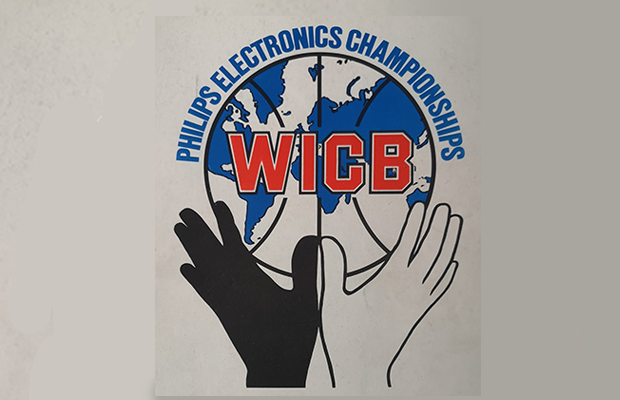WICB Championships (Basketball Tournament)

The World Invitation Club Basketball Championships, more widely known as the WICB, was the best club tournament in the world for a period of 13 years from the late 1970s’ through until the early 1990s.
It had the tagline ‘The unique club tournament featuring the very best clubs in British basketball and the rest of the world’ and was held at Crystal Palace National Sports Centre over the Christmas and New Year break each year.
The WICB tournament started from smaller beginnings with just six men’s teams, to grow to over 80 games with female, junior and wheelchair basketball divisions added.
Affectionately known as ‘The Philips’ in the early years through its long-standing sponsorship with Philips Electronics, it wasn’t until 1980 that the ‘World Invitation Club Basketball Championships’ was used.
The WICB was seen as way ahead of its time and was the only tournament of its kind in the world.
The brainchild of Crystal Palace club owner David Last (an accountant by trade), it was held over a four-day period between Boxing Day and New Year, and not only had lucrative sponsorship deals; originally with Philips Electronics worth ‘way into six figures’, but also featured on primetime television such as BBC Grandstand.
Not only that, but FIBA used the tournament to trial new basketball rules, including the introduction of the 3-point line and the square key way.
It became a huge gathering point for the entire British basketball community – the tournament would sell out – as people would travel from up and down the country to attend.
Referees, coaches, fans and players alike would attend with clinics being ran to aid development.
Numerous international legends of the game played in the tournament, including Toni Kukoc, Antoine Carr and Mike D’Antoni with Milan, and Earl ‘The Pearl’ Williams of Maccabi, not to mention British basketball stars such as Alton Byrd, Steve Bontrager and the late Larry Dassie
Powerhouse club sides from across Europe and America would compete, the likes of Milan, Maccabi Tel Aviv, Red Star Belgrade, and the University of North Carolina all suited up in the WICB, to produce a standard of tournament that was unprecedented at the time.
The top teams would be flown in all expenses paid, whilst the lower level teams would pay their way, and other teams who were more local – like Bracknell – would play for free.
It is still talked about to this day as one of the biggest events that has happened in the British basketball calendar.
WICB Champions
| Year | Overall Club Championship | Senior Men's Championship | Ladies' Championship | Junior Men's Championship | Junior Women's Championship | Wheelchair Championship |
|---|---|---|---|---|---|---|
| 1978 | N/A | Crystal Palace | N/A | N/A | N/A | N/A |
| 1979 | N/A | Maccabi Tel Aviv | Crystal Palace | Crystal Palace | N/A | |
| 1980 | Crystal Palace | Maccabi Tel Aviv | U. North Carolina | Crystal Palace | N/A | |
| 1981 | Bayer Leverkusen | Athletes in Action | Bayer Leverkusen | Coburg Melbourne | N/A | |
| 1982 | Maccabi Tel Aviv | Maccabi Tel Aviv | Klosternburg | Bayer Leverkusen | N/A | |
| 1983 | Red Star Belgrade | Maccabi Tel Aviv | Klosternburg | Red Star Belgrade | N/A | |
| 1984 | Red Star Belgrade | Simac Milan | Red Star Belgrade | Red Star Belgrade | N/A | |
| 1985 | Red Star Belgrade | Maccabi Tel Aviv | Solna | Red Star Belgrade | ||
| 1986 | Sunair/Koksyde | Maccabi Tel Aviv | Crystal Palace | Sunair Ostend | N/A | |
| 1987 | Solna | Bayer Leverkusen | Unimep Sao Paulo | Cont Sao Paulo | N/A | |
| 1988 | Yugoplastika/GB | U. North Carolina | Yugoplastika/GB | N. Monastery, Cork | N/A | |
| 1989 | Bayer Leverkusen | Murray Livingston | BCN Sao Paulo | Cont Sao Paulo | N/A | |
| 1990 | Kingston | N/A | ||||
| 1991 | N/A |
1977-1978
The inaugural ‘Philips International Tournament’ was a six team tournament that saw Crystal Palace upset Cinzano Milan 102-97 in the final.
Crystal Palace beat Red Star in the semi-final. Crystal Palace were led by Larry Dassie one of the premier US imports to ever play on British soil.
1978 – 1979
Year two of the tournament saw the addition of a women’s category, called the ‘Ladies’ Championship’, along with a Junior Men’s Championship for U18s?.
Maccabi Tel Aviv won the mens championship, defeating Avanti Bruges 102-78 in the final.
1979 – 1980
The third year saw the Overall club championship added – as clubs would get points for wins and competing across multiple divisions, with Dr. R. W. Jones Trophy awarded for the best performing club across all 3 divisions
Crystal Palace would take home the honours in its first year
Maccabi Tel Aviv won the men’s division, defeating Parker Lieden 86-77 in the final.
1980 -1981
The 1980-81 tournament was notable due to the arrival of Dean Smith’s University of North Carolina, featuring a future NBA Hall of Famer in James Worthy.
1981 – 1982
1982 saw the introduction of the WICB logo for the first time
Red Star Belgrade won the first of three consecutive ‘Overall Club Championships’, whilst the tournament was validated as FIBA used it as a testing ground for potential rule changes..
1982 – 1983
The 1983-83 tournament was won by Maccabi Tel-Aviv who defeated Crystal Palace 64-60 after flying in future Utah Jazz forward Antoine Carr who put on a highlight show.
Possibly first time 3-point line was used?
1983 – 1984
The 1983-84 WICB Championships, the seventh tournament, was one of the most memorable.
It featured so many good teams, including Red Star Belgrade, Simac Milan, Maccabi Tel Aviv, KK Split (featuring Toni Kukoc and Dino Radja) and American side Athletes In Action (AIA) who included, among others, Dan Davis, Brian Kellybrew and Steve Bontrager, who later became household names in England.
The Women’s tournament had one of the best games televised on BBC with Red Star Belgrade taking on Chung Hua from Taiwan, which they hung on to win 100-92.
It is also the tournament which featured a controversial semi-final between Milan and Bracknell that had to be replayed due to an officiating error.
Milan went on to beat Maccabi Tel Aviv in the men’s final.
1984 – 1985
The 1984-85 tournament saw the addition of the British Junior Cadet Girls division for the first time.
1985 – 1986
In 1985-86 wheelchair basketball was added for the first time, but the British Junior Cadet Girls division was dropped due to lack of sponsor after Philips Electronics ending their agreement with the tournament after 8 solid years.
1986 – 1987
1987
The 1987 event was unique in that it was the only tournament that was held before Christmas rather than at New Year, and also broke grown with the first participation of a national team – the Great Britain Olympic squad.
However, it was not meant to be as the University of North Carolina – featuring a young Steve Bucknall – won in the final 87-79.
1988
The 1988 tournament marked another milestone for the tournament with the appearance of the reigning Olympic champions, the Soviet national team.
With them heavily favoured to meet Aris Thessalonika of Greece in the Final, Scottish side Murray Livingston ripped up the script, as they shocked the soviets with a six-point victory in the Semi-Finals, whilst Bayer Leverkusen took out Aris to set up a Scottish-West German final that saw Murray Livingston victorious 71-62.
1989
Dates: Thursday 28th December to Sunday 31st December
1989 – 1990
Kingston won



0 comments